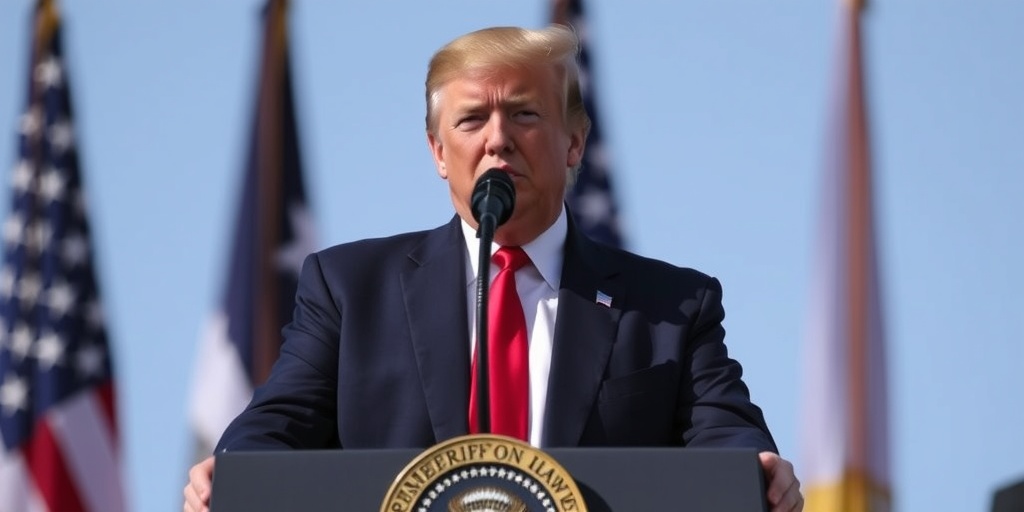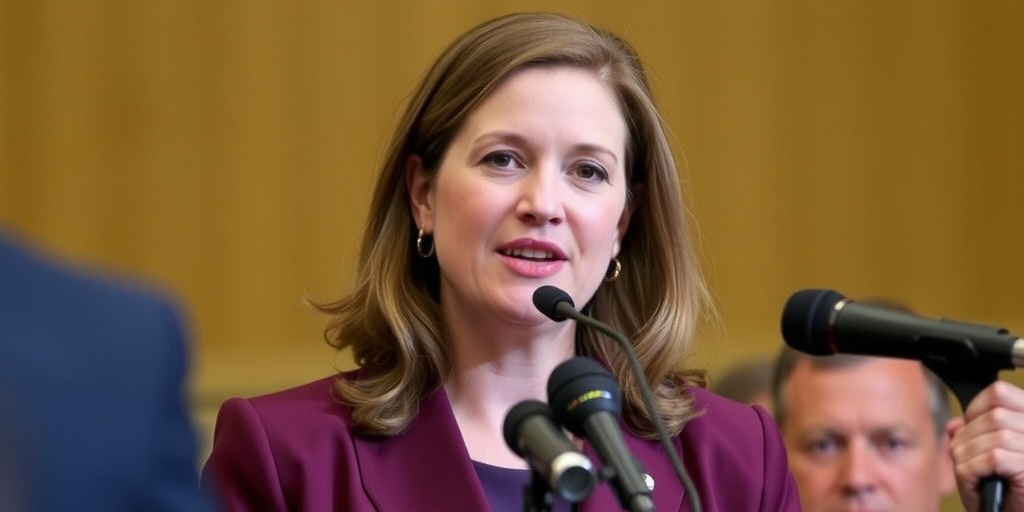Now Reading: Ukraine Poised to Share Mineral Wealth with U.S.
-
01
Ukraine Poised to Share Mineral Wealth with U.S.
Ukraine Poised to Share Mineral Wealth with U.S.

Title: U.S. and Ukraine Edge Closer to Natural Resources Agreement Amid Ongoing Tensions with Russia
In a significant development in U.S.-Ukraine relations, President Donald Trump announced on Monday that the two nations are nearing an agreement that would allow the United States to share in the revenue generated from Ukraine’s natural resources. Trump’s remarks came after months of pressure on the Ukrainian government to finalize a lucrative deal, which could reshape the economic relationship between the two countries.
President Trump stated that Ukrainian President Volodymyr Zelensky is expected to visit the White House either this week or next to seal the agreement. “The agreement’s being worked on now. They’re very close to a final deal,” Trump declared confidently during a press briefing at the White House, indicating that the negotiations have reached a critical stage.
Olha Stefanishyna, Ukraine’s deputy prime minister, corroborated Trump’s comments earlier the same day through a post on social media platform X, noting that “Ukrainian and U.S. teams are in the final stages of negotiations regarding the minerals agreement.” However, details surrounding the terms remain fluid, and sources familiar with the discussions indicated that they were still ongoing as of Monday evening, with potential for further amendments.
The proposed mineral revenue-sharing agreement is tied intricately to the ongoing discussions about U.S. military and financial support to Ukraine, particularly as the country continues to confront the challenges posed by Russia’s invasion. President Zelensky has consistently emphasized the need for Western military assistance and guarantees of support in any peace negotiations to deter future aggression from Russia. Contrastingly, Trump has been advocating for a swift conclusion to the conflict, without extending explicit security agreements that Ukraine has been seeking.
A White House official clarified that this economic agreement will not serve as a guarantee for ongoing military aid, nor will it obligate the deployment of U.S. personnel in the region. A draft of the agreement, reviewed by The New York Times, revealed that earlier demands for Ukraine to commit to transferring $500 billion in revenue generated from its natural resources, including oil, gas, and minerals, have been dropped. The White House had characterized this request as compensation for previous American military and financial assistance, which Ukraine deemed excessively burdensome for its future financial obligations.
Furthermore, the latest draft stipulates that Ukraine would not be required to repay double the amount of future U.S. aid, a condition that was included in earlier drafts of the agreement. This shift appears to be a response to Ukraine’s concerns about long-term fiscal responsibilities placed on its future generations.
The latest negotiations also reflect heightened tensions and a complicated backdrop involving the United States’ diplomatic stance towards Russia. In recent weeks, Trump controversially labeled Zelensky as “a dictator,” while inaccurately suggesting that Ukraine instigated the conflict. On the same day of the announcement, the Trump administration opposed a U.N. resolution which characterized Russia as the aggressor in the ongoing war, drawing criticism from many of U.S. allies.
Despite the absence of the long-requested U.S. security guarantees to help safeguard Ukraine against Russian advances, the draft agreement does propose that the U.S. will have a substantial financial stake in a fund derived from Ukraine’s natural resource revenues. Under the revised terms, Ukraine would relinquish half of its future revenues from natural resource monetization, which would be directed to a fund where the U.S. would hold the maximum permissible financial interest under its laws.
Importantly, the new draft diverges from previous terms that granted the U.S. a 100 percent interest in the fund, an arrangement that would have placed significant constraints on Ukraine’s ability to manage its resources independently. Instead, the revised draft expresses a commitment to reinvest a portion of those revenues back into Ukraine’s economy, although the specific percentage remains unspecified.
The White House maintains that the establishment of American economic interests in Ukraine would inherently act as a deterrent to future Russian aggression, asserting that an economic partnership between the two countries could bolster Ukraine’s security. "What better could you have for Ukraine than to be in an economic partnership with the United States?” remarked Mike Waltz, the U.S. national security adviser, emphasizing the potential benefits of financial cooperation.
While the negotiations appear to have made progress toward a mutually beneficial agreement, the underlying issues surrounding security guarantees and military support continue to loom large as Ukraine grapples with the ramifications of Russian hostility. As both sides prepare for potentially pivotal discussions in the coming days, the implications of this agreement could shape not only the economic landscape but also the strategic positioning of Ukraine in its ongoing conflict with Russia.
Stay Informed With the Latest & Most Important News
Previous Post
Next Post
-
 01New technology breakthrough has everyone talking right now
01New technology breakthrough has everyone talking right now -
 02Unbelievable life hack everyone needs to try today
02Unbelievable life hack everyone needs to try today -
 03Fascinating discovery found buried deep beneath the ocean
03Fascinating discovery found buried deep beneath the ocean -
 04Man invents genius device that solves everyday problems
04Man invents genius device that solves everyday problems -
 05Shocking discovery that changes what we know forever
05Shocking discovery that changes what we know forever -
 06Internet goes wild over celebrity’s unexpected fashion choice
06Internet goes wild over celebrity’s unexpected fashion choice -
 07Rare animal sighting stuns scientists and wildlife lovers
07Rare animal sighting stuns scientists and wildlife lovers




















